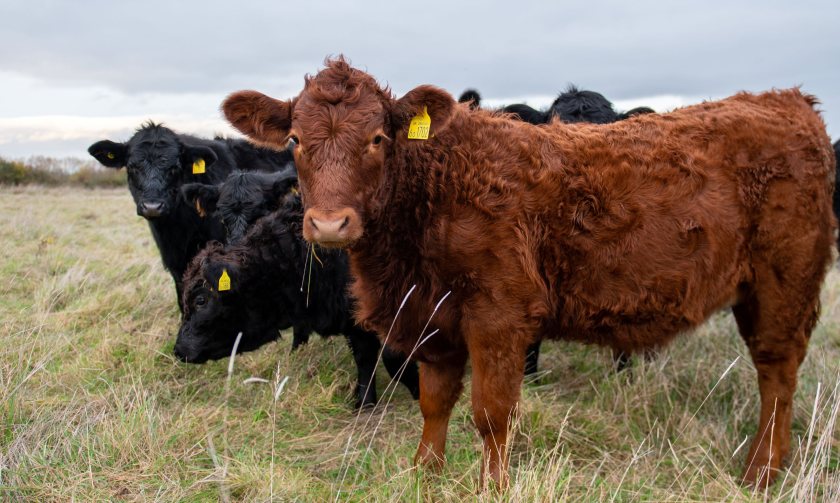
Results from a regenerative grazing study have shown that an adaptive multi-paddock (AMP) grazing system can boost farm resilience while cutting costs.
As part of the study, FAI Farms, near Oxford, transitioned from a rotational grazing system to an AMP system over four years, after formerly set stocking.
Positive impacts were recorded on daily liveweight gains, antibiotic use and weather resilience.
The AMP shift involved grazing a total of 170 cattle at higher densities for shorter amounts of time with longer rest periods.
Karl Williams, director at FAI Farms, in Oxfordshire, said the study found numerous benefits of shifting to an AMP grazing system for the 80 cow suckler herd and 90 store cattle.
He said: “AMP grazing allows the ground to rest, grass covers to grow longer, and roots to grow deeper, improving soil structure and water infiltration.
“Notably, by not having to house livestock over winter, we’ve saved at least £200 on bedding and forage costs per cow per year.”
As well as reducing reliance on bought-in inputs, improving pasture productivity have also benefitted cattle performance.
The Oxfordshire farm is achieving more from grass - daily liveweight gains for its suckler finishers have increased to over 0.8kg per day on average.
“This has meant we’ve been able to reduce finishing ages to approximately 23 months on average, while keeping a similar slaughter weight," Mr Williams said.
The farm's low antibiotic use has reduced even further since the AMP project was started - down to 0.95 mg/kg PCU last year.
And the metrics collected during the project demonstrates the environmental benefits of the grass-reared beef, which became Pasture for Life certified in 2021.
Dr Amanda Deakin, science lead at FAI Farms said: “Carbon sequestration modelling data from Trinity AgTech’s Sandy tool has suggested our beef business is not only carbon neutral, but we’re actually sequestering more carbon than we’re emitting.
“We have also shown that water is infiltrating almost three times faster, on average, across our fields since shifting to an AMP system.
“Our soils can hold much more water when it’s available – not only extending the grass growing season but improving drought resilience and reducing the flooding risk downstream too.”
The AMP system also supports high levels of biodiversity: “Use of bioacoutics devices showed us that the farm is supporting over 50 bird species,” Dr Deakin said.
The project was undertaken by FAI Farms and sponsored by McDonald’s UK and Ireland.
